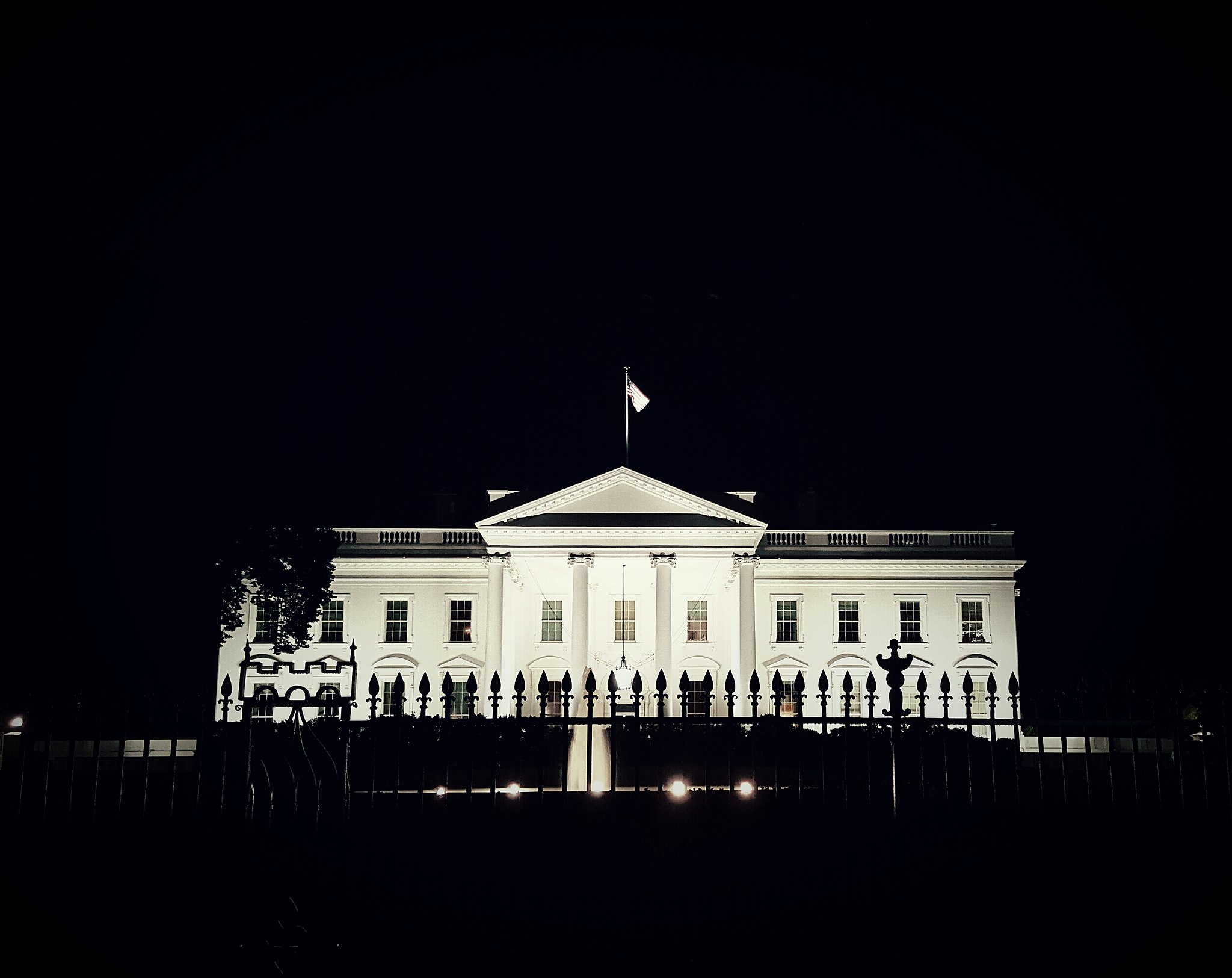President-Elect Trump Begins to Assemble His National Security Team
After a jerky start, the Trump transition appears to be well underway. As of this morning the President-elect has selected three key members of his national security team: Senator Jeff Sessions for Attorney General, Representative Mike Pompeo for CIA Director, and Retired General Mike Flynn for National Security Advisor.
Attorney General: Senator Jeff Sessions (R-AL)
Published by The Lawfare Institute
in Cooperation With

After a jerky start, the Trump transition appears to be well underway. As of this morning the President-elect has selected three key members of his national security team: Senator Jeff Sessions for Attorney General, Representative Mike Pompeo for CIA Director, and Retired General Mike Flynn for National Security Advisor.
Attorney General: Senator Jeff Sessions (R-AL)
As head of the Department of Justice, the Attorney General has wide-ranging authority and discretion to prosecute federal civil and criminal offenses. The Attorney General also provides advice to the President and implements policy on legal issues ranging from civil liberties and civil rights, to environmental protection, to national security.
There have been seven Attorneys General over the past 25 years. Before being appointed as Attorney General, all but one was a prosecutor at either the federal or state level. The exception is Alberto Gonzales, who previously served as a Justice of the Texas Supreme Court and counsel to President George W. Bush both in Texas and the White House. Senator Sessions shares many of the same qualifications: he has served as Assistant United States Attorney for the Southern District of Alabama (1975-77), U.S. Attorney for the Southern District of Alabama (1981-93), and Alabama Attorney General (1995-1997).
Sessions, who has been a Senator for Alabama since 1997, is currently the senior member of the Judiciary Committee and is also a member of the Subcommittees on Immigration and the National Interest and Crime and Terrorism. The Senator was one of Donald Trump’s earliest backers and invited Trump to criticize the United Nations’ $1.2 billion renovation of its New York headquarters in a 2005 Senate subcommittee hearing.
Senator Sessions has made a name for himself as one of the Senate’s most conservative members. He opposed both the Senate’s 2013 comprehensive immigration reform bill and opposed a bipartisan deal to overhaul the federal criminal justice system by reducing sentencing for drug traffickers, though in 2010 he did agree to a plan that reduced crack/cocaine sentencing disparities from 100:1 to 18:1.
Senator Sessions’ past statements are likely to haunt his nomination. His 1986 nomination to a federal judgeship was quashed by the Republican-controlled Judiciary Committee following allegations that Sessions referred to the NAACP and other civil rights groups as “un-American” and “Communist-inspired.” Senator Sessions also reportedly said that he had no issue with the Ku Klux Klan “until I found out they smoked pot,” a statement he has called a joke. At the time, Sessions defended himself by saying that “I have supported civil rights activities in my state. I have done my job with integrity, equality and fairness for all.” Notwithstanding likely opposition from some Democrats, his nomination has been endorsed by key Republicans, including Jeff Flake and Chuck Grassley, neither of whom were vocal Trump supporters during the campaign.
CIA Director: Representative Mike Pompeo (R-KS)
The CIA Director leads the CIA’s operations, personnel, and budget and is the primary manager of national human source intelligence. As a whole, the CIA is responsible for processing, collecting, analyzing, and disseminating intelligence information to top U.S. government officials, and is tasked with providing “objective assessments, free of any political bias,” including the President’s Daily Brief. The CIA Director reports to the Director of National Intelligence.
There have been nine CIA directors over the past 25 years. Unlike the Attorney General, past CIA Directors have had a wider range of professional backgrounds: four have had prior civil service or leadership experience at the CIA, while another four had military careers or civilian positions within the Department of Defense. Only one, Leon Panetta, had no prior intelligence or military experience.
Representative Pompeo’s background is somewhat in line with those of past Directors. He served as an Army cavalry officer after graduating West Point. After a private commercial career in Kansas, he was elected to the House of Representatives in 2010. He is a member of the House Permanent Select Committee on Intelligence (including the Subcommittee on the CIA) and the House Select Committee on Benghazi.
Representative Pompeo’s statements are also likely to raise the ire of some members of Congress. He criticized the 2014 “Torture Report” attacking the CIA’s harsh interrogation practices, saying that “the programs being used were within the law [and] within the Constitution.” Earlier this month, he alleged that U.S. Central Command manipulated intelligence to downplay the threat of the Islamic State in Iraq. Pompeo has been a consistent critic of the Obama administration’s nuclear deal with Iran, arguing that sanctions should be extended and alleging that the administration has effectively helped build Iran’s Air Force. He has also repeatedly criticized Hillary Clinton’s use of a private email server, calling for her intelligence briefings to be halted and demanding an investigation into so-called quid pro quo arrangements between the State Department and FBI.
Most controversially, Pompeo has made a series of comments regarding the role of Muslim-Americans in combating terrorism. Just over a month after the Boston marathon bombing, he said falsely that “the silence of Muslim leaders has been deafening.” He later told the Wichita Eagle that “Islamic clerics in mosques and the madrassas around the world have an obligation to consistently denounce terrorism done in the name of their faith.”
Nevertheless, the ranking Democrat on the House Intelligence Committee, Adam Schiff, praised Pompeo as “someone who is willing to listen and engage, both key qualities in a CIA director.” Committee Chairman Devin Nunes was also supportive, saying that “I am confident that his nomination will be widely supported within the CIA and I look forward to his fast approval by the Senate.” And former CIA and NSA Director Michael Hayden, who has been a vocal critic of Trump, said that he was “heartened by the choice.”
National Security Advisor: Retired General Mike Flynn
The National Security Council (NSC) is the President’s primary forum for deliberating and coordinating security and foreign policy with senior advisors and cabinet officials. The Vice-President, Secretary of State, Secretary of the Treasury, Secretary of Defense, Chairman of the Joint Chiefs of Staff, and National Security Advisor are the primary members of the NSC. The National Security Advisor and his or her staff takes the lead in coordinating policy making between members of the National Security Council, and is often a primary counselor to the President on security issues.
There have been eight National Security Advisors over the past 25 years. Every National Security Advisor has had prior foreign policy experience at either the Department of State, Department of Defense, National Security Council, or some combination of the three. While General Flynn has long worked in military intelligence, his career came to a close after he was forced out as head of the Defense Intelligence Agency in 2014.
General Flynn holds a number of contentious views, though his most controversial statements have been Islamophobic. In February he tweeted that “Fear of Muslims is RATIONAL.” He has said that the United States is in a “world war” with Islamist militants and argued that Shariah is spreading throughout the country. Flynn has also argued that Islam is less a religion than a political ideology, sometimes going so far as to call it a cancer.
During the campaign General Flynn often led the crowd in “Lock her up!” chants directed at Hillary Clinton. On Twitter, he has engaged in a pattern of commenting on far-right, anti-Semitic and misogynist accounts, at one point retweeting a remark reading, “Not anymore, Jews. Not anymore”—for which he later apologized—and enthusiastically recommending the work of Mike Cernovich, a pro-Trump Twitter troll known for his misogynistic comments who recently asserted that Hillary Clinton is involved in a Satanist sex cult.
Like President-elect Trump, General Flynn advocates closer relations with the Kremlin. He has repeatedly appeared on RT, an English-language state media outlet, and was photographed in December 2015 seated next to Russian President Vladimir Putin at RT’s tenth anniversary gala.
Concern has also swirled around potential conflicts of interest involving Flynn’s intelligence consulting firm. Over the summer, it was revealed that Flynn lobbied for a business with close ties to Turkish President Erdogan while simultaneously sitting in on Trump’s classified security briefings.
Finally, there have been conflicting accounts about why Flynn was fired as head of the Defense Intelligence Agency. General Flynn argues that he was fired because he refused to toe the Obama administration’s line that militant Islamist groups were in retreat. Many who worked with Flynn, however, attribute his firing to an attempt at reorganization that left the DIA “a chaotic, backbiting mess.”
Notably, the National Security Advisor is not subject to Senate confirmation. This may have been a major factor in Flynn’s appointment, as it remains unclear whether he could successfully be confirmed.





